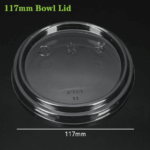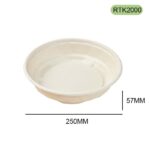Quick Summary
France’s commitment to reducing plastic waste has led to stringent regulations on single-use plastics, particularly in the tableware sector. Since 2021, the country has banned the sale of disposable plastic tableware, promoting alternatives made from biodegradable or reusable materials. This shift presents opportunities for eco-friendly tableware companies, like DASHAN, that offer sustainable options such as corn starch, bagasse, and RPET products. The French market increasingly demands sustainable materials, and businesses aligning with these trends are poised to succeed.
1. Introduction: France’s Shift Toward Sustainable Tableware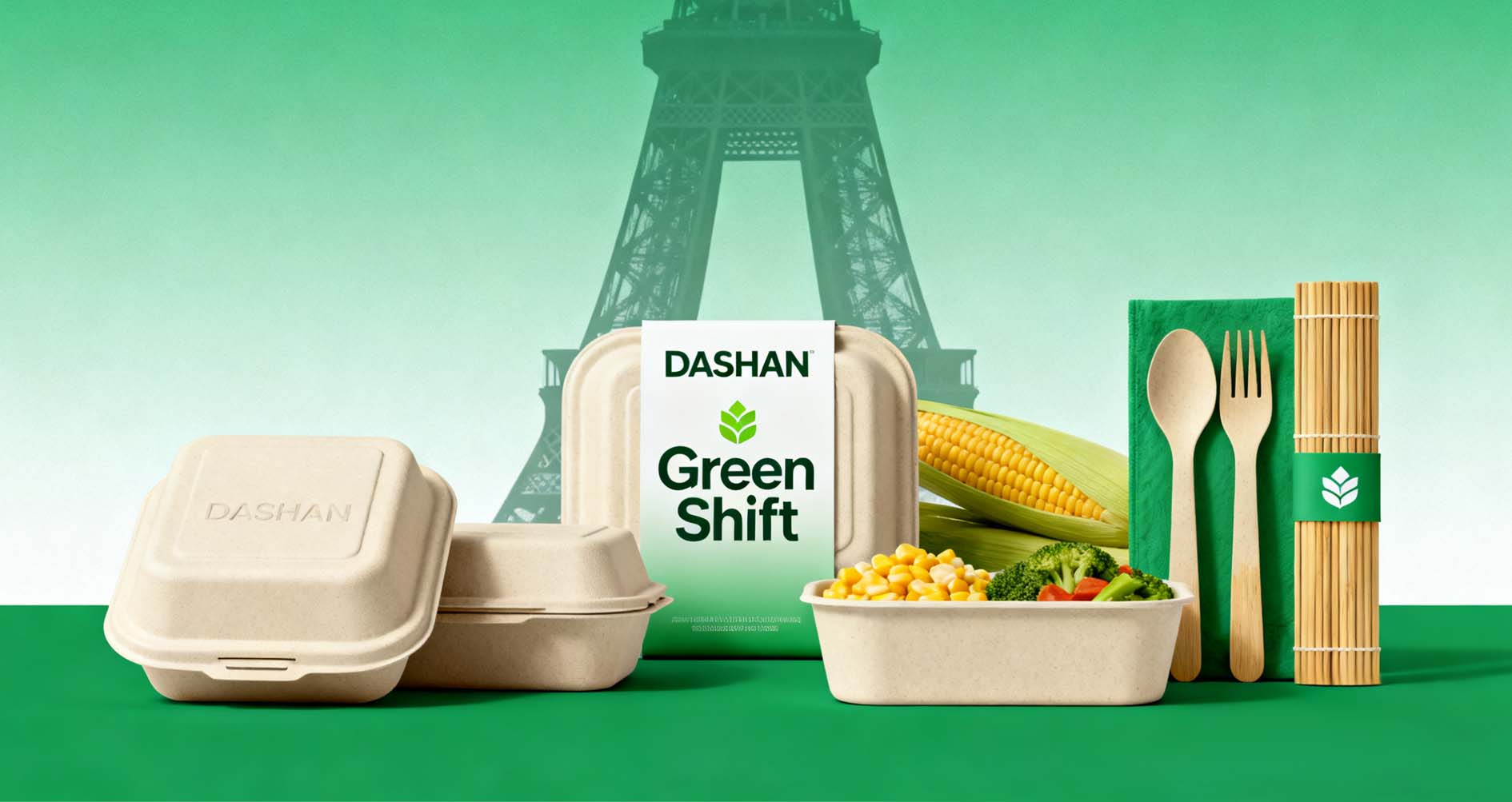
As one of the leading European countries in environmental sustainability, France has been at the forefront of promoting eco-friendly practices, particularly in reducing plastic waste and encouraging the use of environmentally friendly materials. Over recent years, the French government has introduced a series of stringent regulations, notably banning single-use plastic tableware. These policies not only drive the transformation of the domestic market but also present significant opportunities for international suppliers. As this trend continues, green tableware manufacturers such as DASHAN, with its innovative corn starch, bagasse, and RPET (recycled PET) materials, are well-positioned to meet the rising demand for sustainable alternatives.
2. Overview of France’s Tableware Import Policy
France’s tableware import policy is heavily influenced by environmental regulations, tariff rates, and compliance requirements. Since January 2021, France has implemented a significant ban on single-use plastic tableware, which includes plastic knives, forks, spoons, plates, cups, and straws. The purpose of this ban is to reduce plastic waste and encourage the use of compostable or reusable materials.
Environmental Regulations and Restrictions
Under France’s environmental policies, manufacturers are required to switch to biodegradable or reusable materials for tableware. As a result, plastic tableware imports have become increasingly difficult. To meet market demand, businesses must consider using natural, biodegradable materials like corn starch, bagasse, and similar eco-friendly options.
In addition to these regulatory measures, the French government has also implemented incentives, such as tax breaks or tariff reductions for eco-friendly products, encouraging businesses to adopt sustainable production practices. These policies not only help protect the environment but also promote innovation, offering businesses a chance to stand out in an increasingly competitive market.
Tariffs and Taxation Policies
Regarding tariffs, France follows the common tariff policy of the European Union. Generally, the tariff rate for importing tableware ranges from 0% to 10%, depending on the material and intended use. For example, ceramic tableware typically has a 0% tariff, while stainless steel tableware may be subject to a tariff of 2% to 5%. For eco-friendly tableware, such as those made from corn starch or bagasse, France may offer additional tariff reductions to encourage the importation of sustainable products.
In addition, France applies a Value Added Tax (VAT) of 20% on most tableware products. However, products that meet environmental standards or certifications may benefit from tax incentives or subsidies.
Safety and Compliance
In addition to tariffs and environmental regulations, tableware products must meet a series of health, safety, and compliance standards to enter the French market. All imported tableware must comply with EU safety standards for food contact materials and obtain CE certification. This certification ensures that the product is safe for consumers and does not pose health risks.
CE certification covers multiple aspects, including the material’s safety, biodegradability, and environmental impact. Tableware that meets these requirements will have easier access to the French market and greater consumer trust.
3. The Growing Demand for Sustainable Materials in the French Tableware Market
As environmental consciousness grows, the demand for sustainable tableware materials in France continues to rise. Both consumers and businesses are increasingly seeking eco-friendly alternatives, particularly in the foodservice and takeaway industries, which are under pressure to replace single-use plastics with greener options.
The Importance of Biodegradable Materials
Corn starch and bagasse are among the most popular eco-friendly materials in the tableware industry. Corn starch tableware is made from natural plant starch and is highly biodegradable, breaking down completely in composting conditions. This makes corn starch an excellent option for single-use tableware, as it doesn’t cause long-term environmental harm. Bagasse, the fibrous byproduct of sugarcane after it’s processed, is another biodegradable and durable material that is widely used for food packaging and tableware.
The French market has been particularly receptive to these biodegradable materials, especially in the foodservice and takeaway sectors. As environmental regulations tighten, more and more restaurants and food suppliers are turning to corn starch and bagasse products to replace traditional plastic and paperware.
The Advantage of Green Certifications
Green certifications such as EU Ecolabel and OK compost have become important considerations for consumers and businesses when selecting eco-friendly tableware in France. Achieving these certifications not only enhances a product’s credibility but also provides manufacturers with a competitive advantage in the marketplace.
In France, tableware that meets environmental standards is often given priority and may even be favored in public procurement projects. For international manufacturers, obtaining green certifications can facilitate market entry not only in France but across the broader EU market.
4. DASHAN’s Market Opportunity with Green Tableware
DASHAN, a company specializing in eco-friendly tableware materials, is well-positioned to take advantage of France’s growing demand for sustainable products. With its corn starch, bagasse, and RPET products, DASHAN can provide solutions that meet both environmental regulations and consumer expectations for sustainable tableware.
Corn Starch Tableware
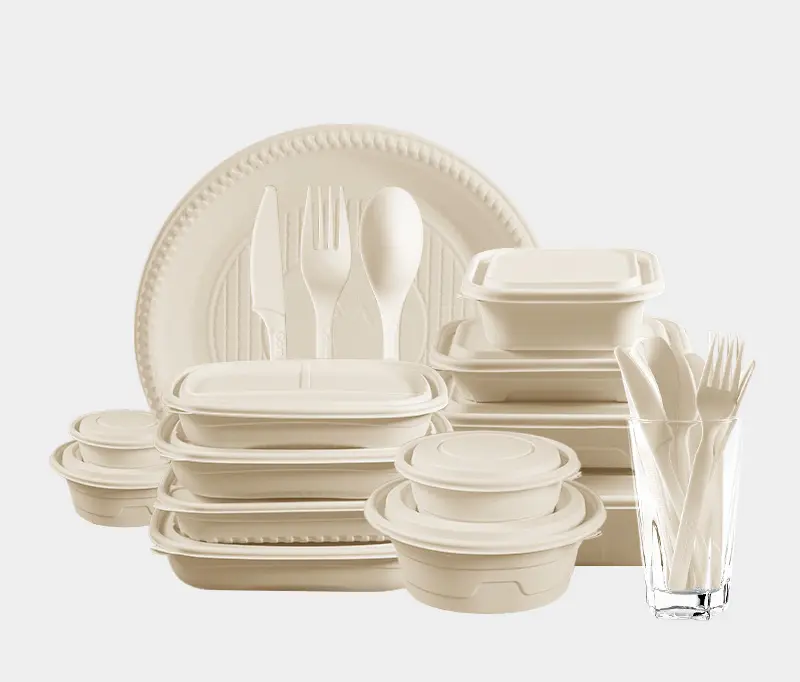
DASHAN’s corn starch tableware is made from natural plant starch and is highly biodegradable. These products offer excellent strength and durability, making them ideal for the foodservice and takeaway sectors. Given that France has a growing demand for biodegradable, single-use items, DASHAN’s corn starch tableware is an excellent fit for this market, offering a sustainable alternative that complies with environmental regulations.
Bagasse Tableware
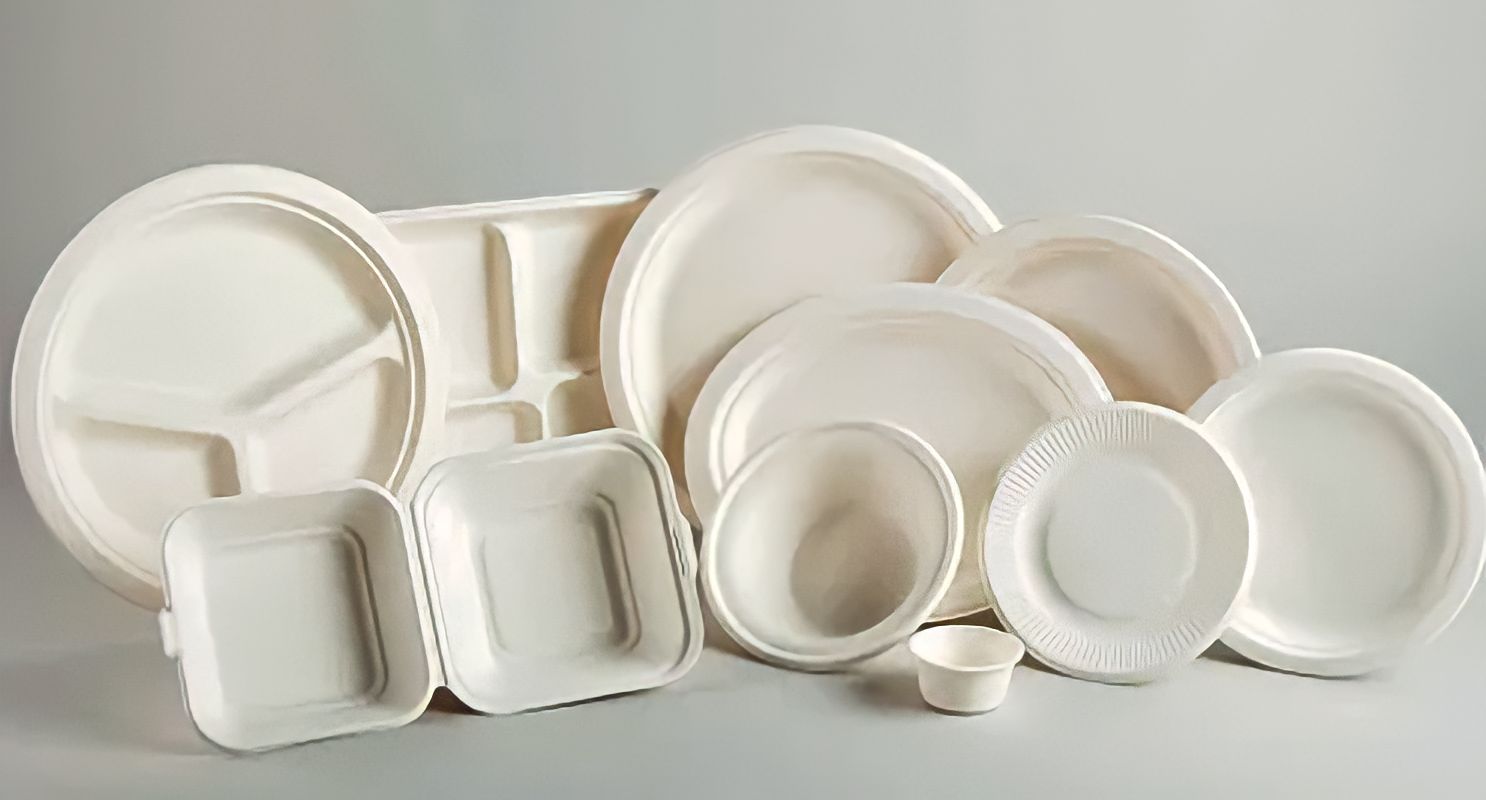
DASHAN’s bagasse products, made from sugarcane byproducts, are durable, heat-resistant, and biodegradable. Bagasse is a renewable resource, and its production process results in lower carbon emissions compared to traditional plastic. DASHAN’s bagasse tableware is not only sturdy but also able to prevent leakage from hot liquids, making it a perfect choice for hot food deliveries and restaurant use.
RPET Tableware
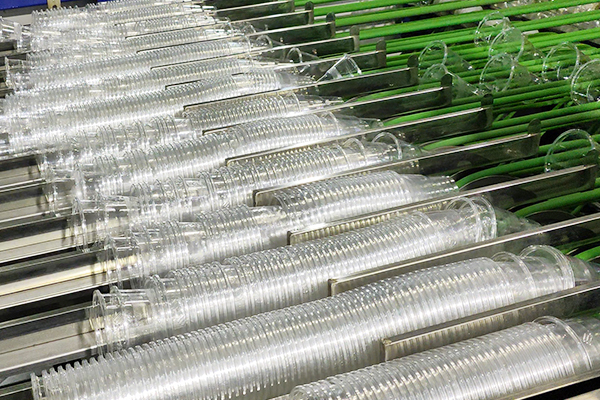
RPET (Recycled PET) is another highly sustainable material used in tableware production. DASHAN’s RPET products are made from recycled plastic bottles or other PET items, providing a circular economy solution. With France’s increasing focus on recycling and reducing plastic waste, RPET tableware is a great alternative to traditional plastic, offering durability and reusability.
5. DASHAN’s Opportunities in the French Market
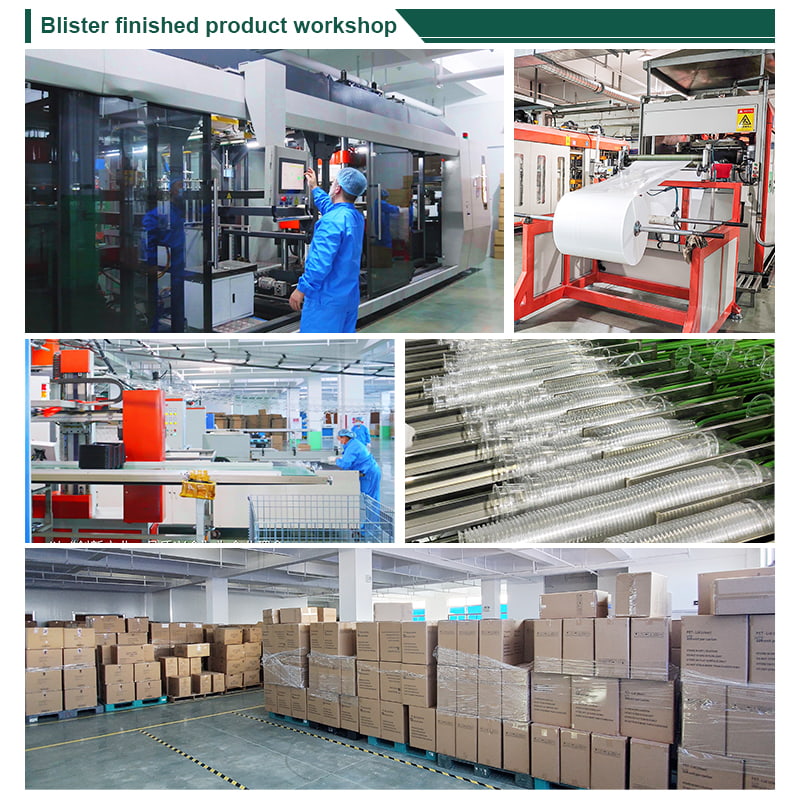
DASHAN’s green tableware products, made from corn starch, bagasse, and RPET, align perfectly with France’s growing demand for sustainable alternatives. These materials not only comply with France’s environmental regulations but also meet the increasing consumer demand for eco-friendly, biodegradable products.
Catering to the Demand for Sustainability
DASHAN’s products meet the rising demand for eco-friendly tableware in France. By offering high-quality, low-carbon alternatives, DASHAN can tap into France’s growing market for sustainable products. Furthermore, obtaining green certifications will enhance the company’s market competitiveness and enable faster market penetration.
Compliance with French Regulations
DASHAN’s products are compliant with French and EU environmental regulations, and they are certified with CE, ensuring their safety for consumer use. This makes DASHAN’s tableware an ideal choice for businesses in the foodservice and takeaway sectors, who need to adhere to strict environmental standards.
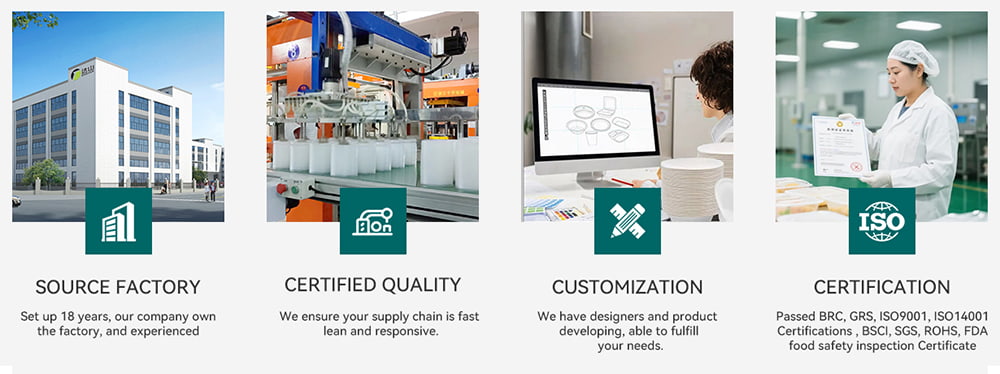
6. Conclusion and Future Outlook
The French tableware market is undergoing an eco-friendly transformation, with growing demand for biodegradable and reusable products driven by tightening regulations and increasing consumer awareness. DASHAN’s corn starch, bagasse, and RPET tableware products, with their high-quality and sustainable properties, have significant potential in the French market. With increasing support from the French government for eco-friendly products, DASHAN is well-positioned to expand its presence in France and contribute to the global movement toward sustainable tableware.
FAQ
Q1: What is France’s stance on plastic tableware?
A1: France has implemented a ban on disposable plastic tableware, effective from January 2021. The ban covers products like plastic knives, forks, plates, and cups, which must be replaced with biodegradable or reusable alternatives.
Q2: How does DASHAN’s tableware align with France’s regulations?
A2: DASHAN’s corn starch, bagasse, and RPET tableware products comply with France’s environmental regulations, offering biodegradable, recyclable, and compostable alternatives to single-use plastics. These products meet EU and French safety and sustainability standards.
Q3: What are the advantages of using corn starch and bagasse in tableware?
A3: Both corn starch and bagasse are biodegradable, renewable materials. Corn starch is a compostable option, while bagasse is strong, heat-resistant, and ideal for hot food applications. These materials help reduce plastic waste and align with eco-conscious consumer preferences.
Q4: Can RPET tableware be recycled?
A4: Yes, RPET (Recycled PET) is made from post-consumer recycled plastic, which can be further recycled after use. This helps reduce plastic waste and supports the circular economy.
Q5: How can businesses benefit from France’s green certification for tableware?
A5: Obtaining certifications like the EU Ecolabel helps businesses demonstrate their commitment to sustainability, offering a competitive edge in the French market. Certified products are more likely to be favored by environmentally conscious consumers and businesses.
Conclusion
France’s strong push for environmental sustainability has created a dynamic market for eco-friendly tableware. DASHAN’s innovative use of biodegradable and recyclable materials such as corn starch, bagasse, and RPET aligns perfectly with France’s green policies. As the demand for sustainable products grows, companies offering compliant and eco-conscious solutions will thrive. DASHAN’s products, meeting French regulations and environmental standards, are well-positioned to capitalize on these opportunities in the French market.
References
-
French Government – Ministry of the Environment. (2021). Single-Use Plastics Ban in France. Retrieved from www.ecologie.gouv.fr
-
European Commission. (2020). Circular Economy Action Plan. Retrieved from www.europa.eu
-
EU Ecolabel. (2020). Guidelines for Environmental Certification in Consumer Goods. Retrieved from www.ecolabel.eu
-
Statista. (2023). European Market for Biodegradable Tableware. Retrieved from www.statista.com
Copyright Statement
© 2025 Dashan Packing. All rights reserved.
This article is an original work created by the Dashan Packing editorial team.
All text, data, and images are the result of our independent research, industry experience,and product development insights. Reproduction or redistribution of any part of this content
without written permission is strictly prohibited.
Dashan Packing is committed to providing accurate, evidence-based information and to upholding transparency, originality, and compliance with global intellectual property standards.


